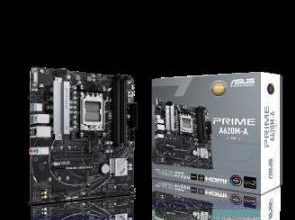Qtum (QTUM) and the Music Industry: Disrupting the Distribution Model

Qtum (QTUM) and the Music Industry: Disrupting the Distribution Model
Introduction
The music industry has been undergoing a significant transformation in recent years, thanks to advancements in technology. One of the latest disruptive forces in the industry is Qtum (QTUM), a blockchain platform that is revolutionizing the way music is distributed.
How Qtum (QTUM) is Changing the Music Industry
Decentralized Distribution
Traditional music distribution models often involve intermediaries such as record labels, distributors, and streaming platforms. These intermediaries typically take a significant portion of the revenue, leaving artists with only a fraction of their earnings. Qtum aims to eliminate these intermediaries by enabling direct peer-to-peer transactions between artists and their fans.
Smart Contracts and Royalty Payments
One of the most significant advantages of using Qtum in the music industry is the ability to utilize smart contracts. Smart contracts are self-executing contracts with predefined rules and conditions. Artists can set up smart contracts on the Qtum blockchain, ensuring that they receive a fair share of royalties every time their music is streamed or purchased. This removes any ambiguity or reliance on third parties for royalty payments.
Ensuring Transparency
Qtum’s blockchain technology provides transparency in the music industry. Every transaction and royalty payment made on the platform is recorded on the blockchain, making it easily accessible and verifiable. Artists can track their revenue streams accurately and have confidence in the transparency of the distribution process.
Data Privacy and Rights Management
With traditional music streaming platforms, artists often face challenges regarding their data privacy and rights management. Qtum addresses these issues by providing artists with more control over their data and intellectual property rights. By leveraging the blockchain’s decentralized nature, artists can secure their music and control who has access to it, preventing unauthorized use or piracy.
Frequently Asked Questions
1. Can any artist use Qtum (QTUM) for music distribution?
Yes, Qtum is open to all artists regardless of their popularity or genre. Whether you’re an established artist or an aspiring musician, you can leverage Qtum’s decentralized platform to distribute your music directly to your fans.
2. How does Qtum (QTUM) benefit music listeners?
Qtum benefits music listeners by providing them with a more transparent and fair music distribution model. By supporting their favorite artists directly, listeners can ensure that the artists receive a more significant portion of the revenue generated from their music.
3. Is Qtum limited to the music industry?
No, Qtum is not limited to the music industry. It is a versatile blockchain platform that can be utilized in various sectors, including finance, healthcare, and supply chain management.
Conclusion
Qtum (QTUM) is bringing innovation to the music industry by disrupting the traditional distribution model. With decentralized distribution, smart contracts, and enhanced transparency, Qtum provides artists with more control over their music while ensuring fair and transparent revenue streams. This blockchain technology has the potential to reshape the future of the music industry, benefitting both artists and music listeners alike.
By adopting Qtum, artists can not only promote their music directly to their fans but also have greater control over their revenue and intellectual property rights. It’s an exciting time for the music industry, as blockchain technology offers new opportunities for artists to thrive.



